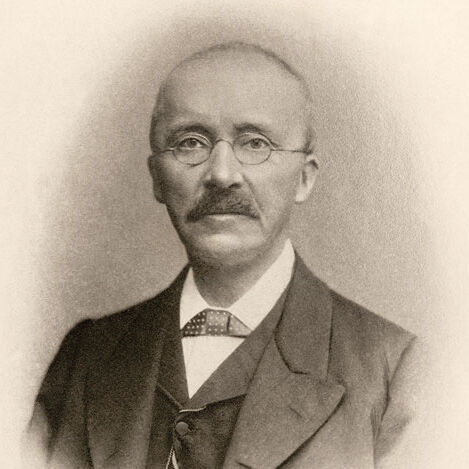
The Heinrich Schliemann-Institute of Ancient Studies is looking back to a long tradition.
As early as 1828 the Seminar of Classical Philology was founded under the supervision of the Hellenist Franz Volkmar Fritsche. For a long time reseach was focussed on the ancient languages. In 1869 Heinrich Schliemann, who hailed from Mecklenburg, received a doctorate. In 1881 Classical Archaeology finally separated itself from Philology and founded an Institute of its own under Gustav Körte, who also founded the archaeological collection which is still being kept today. Ancient History went on to create a separate academic institution for itself by forming the Historical Institute II under Walther Kolbe (1905–1919 in Rostock). In 1923 the associate professorship was converted to a full professorship.
In Classical Philology faculty kept changing up until the beginning of the 20th century, well-known philologists such as Eduard Schwartz, Friedrich Leo and Otto Kern among them. When the Chair of Ancient Greek was taken by Johannes Geffcken in 1907 and the Chair of Latin by Rudolf Helm in 1909 a period of great stability ensued. The same applies to Ancient History under the direction of Ernst Hohl (1919-49 in Rostock) and to Classical Archaeology under Gottfried. von Lücken (1921–54 in Rostock). During this period the archaeological collection, which had started off with a plaster cast given to the University as a present by Heinrich Schliemann, acquired a large number of exhibits.
In 1933 Kurt von Fritz took the Chair of Ancient Greek. In 1934 he was the only German university teacher to refuse to take the unconditional oath on the person of Adolf Hitler all civil servants had been required to take; he was subsequently removed from his post. His successor was Hans Diller. In 1937 Andreas Thierfelder took over the Latin Chair from Rudolf Helm who retired. Even during the war courses continued with all kinds of restrictions. After the war Ancient Studies started over when the University was refounded in 1946 under the direction of teachers who had preserved their integrity in the Nazi period: Ernst Hohl, Gottfried. von Lücken, Rudolf Helm, who returned from retirement and continued to work till 1953, and the Hellenist Hans Kleinknecht. However, at the beginning of the 50s trouble began to brew for the classical subjects as the „socialist reform of academic institutions" began to take its course. The founding of an Institute of Ancient Studies in 1963 uniting all the disciplines under one roof could not prevent them from disappearing into a Department of History in general. In 1969 the Philosophical Faculty as a whole was disbanded and replaced by a Faculty of Social Sciences. After that it was impossible to teach more than basic knowledge.
It was not until the refounding of the Philosophical Faculty in 1990 that the Institute of Ancient Studies could be reformed and the full curriculum of courses could be resumed in the academic year of 1991/92.
The archaeological collection, which had been decimated in the post-war period, is being reformed. A growing number of exhibits covering a wide range of periods, styles and types of artefact can be viewed in the new exhibition rooms (open to the public upon prior notice).
To commemorate the discoverer of Troy Heinrich Schliemann and his doctorate the Institute has been bearing his name since the academic year of 2004/05.
